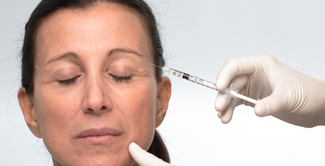AAD 2022: What Is New in Skin Care?
With skin care at the forefront of the conversation, dermatology experts reviewed a variety of developments across the spectrum of care, including:
• How skin has reacted to COVID-19 and the various vaccines
• New sun protection updates
• Expanded treatment options
• How the environment affects skin
• Causes of itchy pediatric rashes
• The importance of inclusivity among dermatologists
• The impact of patient diets
• Understanding the skin barrier
• Comorbidity advancements
Starting with COVID-19, which has been a popular topic of discussion since the beginning of the pandemic, experts at the meeting explained that dermatologists have now been able to gather a larger amount of data on skin reactions linked with COVID-19 and its vaccines. According to data highlighted during the meeting, roughly 10% of patients diagnosed with COVID-19 will have a skin reaction. It is important to note that among the patients who develop a rash, 20% will develop the rash either as their only sign and symptom of COVID-19 or their first sign and symptom. Esther Freeman, MD, PhD, FAAD, director, global health dermatology, Harvard Medical School, explained that the duration and treatment of the skin reaction is dependent on the type of reaction the patient has—although all rashes are said to clear up within a month.1
In addition to COVID-19-related rashes, patients also experienced reactions from the vaccines resulting in “COVID arm”—a delayed local reaction to the vaccine. Dr Freeman stressed that after 10 billion vaccine doses, dermatologists now have access to a lot of safety data and should encourage their patients to protect themselves.1
Aside from COVID-19 data, experts at AAD 2022 also covered treatment option expansions. More specifically, Seemal Desai, MD, FAAD, highlighted the current treatment options for acne dyspigmentation and what is expected down the pipeline.2 During his session, he focused primarily on new nonhydroquinone-based topical lightening agents and chemical peels, particularly combination chemical peels. According to Dr Desai, dermatologists often treat patients with hydroquinone-based therapies as skin lightening agents. Although commonly used, this could pose a challenge for postinflammatory hyperpigmentation, he explained. Dr Desai provided a list of other options that physicians can utilize for this patient population, including azelaic acid, retinoids, topical cysteamine, topical and oral tranexamic acid, and a variety of chemical peels.
Another popular topic of conversation at the meeting surrounded the treatment of atopic dermatitis (AD). During one session, a leading group of experts came together to discuss recent AD developments, including comorbidities and emerging treatment evidence, as well as the therapeutic pipeline. Jonathan Silverberg, MD, PhD, MPH, FAAD; Peter Lio, MD, FAAD; and Andrew Blauvelt, MD, FAAD, all spoke to the attendees about various updates and changes in the AD spectrum.
Dr Silverberg said during the session that “AD has been described by some as a systemic disease,” with more than 15 comorbidities linked with AD.3 He stressed that patients with moderate to severe AD should always be assessed for comorbidities—although he said ideally all patients would be assessed.
Of important note during this session, Dr Blauvelt said it was announced at the meeting that baricitinib will no longer be studied for the treatment of AD.4 Instead, there will be a shift in research to alopecia, and he said that it is expected to be approved later in 2022. If approved, this will be the first US Food and Drug Administration-approved treatment for alopecia.
Another popular session at the meeting covered patient diets and how they affect skin. Vivian Shi, MD, FAAD, kicked off the session and said to the attendees, “[T]his session is not to tell our patients to go vegan, it’s to modify treatment plans to each patient.”5
“If a person has a very strong reaction to an allergen, which is a potential culprit for systemic contact dermatitis, have the conversation about diet early,” stressed Peggy Wu, MD, MPH, FAAD.6
Adam Friedman, MD, FAAD, then explained that because Western diets often have hormonal effects in cow’s milk products and are also high in caloric content, including carbohydrates, fats, and proteins, “the prevalence of acne is substantially lower in non-Westernized populations.”7 The overall takeaway was it is important for patients to understand that dietary factors do not independently cause skin flare-ups.
Finally, Steven Feldman, MD, chief medical editor of The Dermatologist, also attended the meeting. While enjoying the busy event, he took a moment and said, “It's a pleasure seeing all my friends again, of course. I think people were pessimistic that dermatology would be dying and there wouldn’t be any advancements, but a look into the exhibit hall at the number of vendors [shows] it is definitely advancing!”
References
1. Freeman EE. COVID-19 dermatology and vaccines: COVID-19 skin reactions. Presented at: AAD Annual Meeting; March 25-28, 2022; Boston, MA.
2. Desai SR. Acne and rosacea: update on treatment of dyspigmentation in acne and rosacea. Presented at: AAD Annual Meeting; March 25-28, 2022; Boston, MA.
3. Silverberg JI. Translating evidence into practice: atopic dermatitis guidelines: update on comorbidities. Presented at: AAD Annual Meeting; March 25-28, 2022; Boston, MA.
4. Blauvelt A. Translating evidence into practice: atopic dermatitis guidelines: new therapies. Presented at: AAD Annual Meeting; March 25-28, 2022; Boston, MA.
5. Shi V. Dietary triggers and modifications of common dermatologic conditions—an evidence-based approach: an introduction to nutrition and skin. Presented at: AAD Annual Meeting; March 25-28, 2022; Boston, MA.
6. Wu P. Dietary triggers and modifications of common dermatologic conditions—an evidence-based approach: diet and contact dermatitis. Presented at: AAD Annual Meeting; March 25-28, 2022; Boston, MA.
7. Friedman AJ. Dietary triggers and modifications of common dermatologic conditions—an evidence-based approach: diet and acne. Presented at: AAD Annual Meeting; March 25-28, 2022; Boston, MA.























